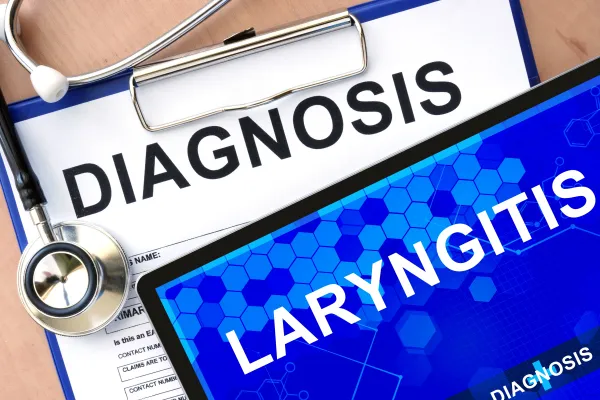Focus on Obstruction for Successful Acute Laryngitis Coding

Don’t miss the change to separate code families under ICD-10.
Part of the physical exam for diagnosing acute laryngitis includes looking for the presence or absence of obstruction. That single detail can help guide your diagnosis selection under ICD-9. If there is no obstruction, you assign 464.00 (Acute laryngitis; without obstruction). If an obstruction is present, you assign 464.01 (Acute laryngitis; with obstruction).
Both codes apply to patients with several types of laryngitis:
Diagnoses 464.00 and 464.01 also apply to acute laryngitis, not otherwise specified.
ICD-10 changes: Once ICD-10 goes into effect in October 2015, you’ll shift to J04.0 (Acute laryngitis) to report acute laryngitis without obstruction. Note that ICD-10 has a broader description that doesn’t include the explanatory phrase “without obstruction” in the descriptor. You’ll still need to look through documentation for the presence of obstruction, however, because it could affect your coding. If obstruction is present, you’ll report J05.0 (Acute obstructive laryngitis [croup]) instead of J04.0.
Acute to chronic: If the patient follows a treatment plan, he or she should have a quick recovery from acute laryngitis. If the patient’s symptoms have not resolved after approximately three weeks, however, the physician should evaluate the patient for chronic laryngitis. You currently code chronic laryngitis as 476.0, and that diagnosis will switch to J37.0 (Chronic laryngitis) under ICD-10.
Example: Your physician assesses a new patient presenting with symptoms of cough, sore throat, and hoarseness. The patient complains that he has been suffering from these symptoms for the past week and has now developed severe symptoms of rhinitis. He has been having fever for the past two days.
The physician records the patient’s history and performs a thorough examination of the patient. He then performs a direct examination of the larynx using a laryngoscope and observes edema in the vocal folds. He documents that there is no obstruction of the airway present.
Based on the history, examination, and findings during laryngoscopy, your clinician arrives at the diagnosis of acute laryngitis without obstruction.
Here’s how to report: You report the evaluation of the patient with an appropriate evaluation and management code, such as 99203 (Office or other outpatient visit for the evaluation and management of a new patient…). You report the diagnosis with 464.00 currently, but will use J04.0 for ICD-10.
Final note: ICD-10 asks you to report an additional code (B95-B97) to identify the infectious agent responsible for the acute laryngitis, if possible.

